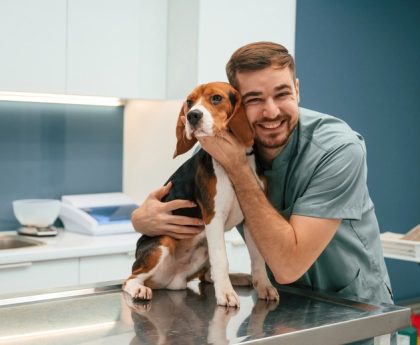When you bring a new furry friend into your home, be it a playful puppy or a cuddly kitten, their dietary needs should be at the forefront of your pet care checklist. These little bundles of energy are not just mini versions of adult dogs and cats; they have specific nutritional requirements that are critical to their growth and overall health.
A well-balanced diet tailored to their developmental stage can pave the way for a long and healthy life. This simple, human-written article will gently walk you through the specialized diet needs of puppies and kittens.
Diet Needs for Growing Puppies
Puppies experience rapid growth and development, which calls for increased amounts of proteins, fats, and carbohydrates alongside a balanced intake of vitamins and minerals. High-quality commercial puppy foods are typically formulated to meet these demands. However, it is important to understand that different breeds and sizes of puppies might require variations in diet.
Protein Powerhouses
Protein is crucial for building and repairing tissues and for overall growth. Puppies generally require about twice as many proteins as adult dogs to support their muscle development. Look for diets that have a variety of protein sources, like chicken, beef, or fish.
Essential Fatty Acids and Energy
Fats provide more than twice the energy that proteins or carbohydrates do, which is exactly what your high-energy puppy needs. Essential fatty acids, particularly omega-3 and omega-6, are also vital for brain development, immune function, and a healthy coat and skin.
Carbohydrates and Fiber
Carbohydrates provide a quick source of energy for your energetic pup. Meanwhile, fiber is important to ensure that their digestive system runs smoothly. Whole grains and vegetables in a puppy’s diet can provide these necessary nutrients.
Diet Needs for Kittens
Kittens, like puppies, have specific dietary requirements to support their growth and energy needs. A kitten’s diet should be rich in proteins and fats but must also include the right balance of vitamins and minerals.
Protein
The protein content in a kitten’s diet should be higher than that of adult cats to aid their rapid body growth. Essential amino acids found in animal-based proteins, like taurine, are especially important for heart and eye health.
Fats
Kittens are incredibly active and require energy from dietary fats to keep up with their curiosity and playfulness. Fats provide a concentrated energy source that helps in the development of vital organs and the central nervous system.
Calcium and Phosphorus
A careful balance of calcium and phosphorus is required for proper bone development and the growth of healthy teeth in kittens.
How Much and How Often?
Young animals need to eat more frequently than adults due to their high energy needs and smaller stomachs. For puppies, feeding should be spread out over three to four meals a day, gradually transitioning to two as they approach adulthood. Kittens require multiple small meals throughout the day, around four to six times, with portion sizes that prevent them from overeating.
If you’re wondering about the best nutritional choices for your new pet, seeking professional advice is invaluable. A visit to a puppy vet in Oklahoma City or one in your locality can give you expert guidance on the appropriate diet for your puppy or kitten’s breed, size, and individual needs.
Transitioning to Solid Foods
The journey onto solid foods should begin when puppies and kittens are around four weeks old. Start by offering specialized weaning formulae that are easily digestible. Gradually incorporate more solid foods until they are fully weaned by six to eight weeks of age.
Finding the Right Balance with a Vet Nutritionist
To help your pet thrive with a well-balanced diet, consider consulting with a dog nutritionist. A vet nutritionist specializes in creating diet plans tailored to your pet’s specific stage of life, health status, and lifestyle. Their expertise is not limited to dogs, as they can guide kitten nutrition, too.
Other Considerations and Special Diets
Sometimes, puppies and kittens might require special diets due to health issues or food sensitivities. In these cases, the advice of a veterinary professional is key to steering clear of allergens and finding suitable alternatives that still meet nutritional standards.
Hydration is Key
Ample access to fresh water is essential for both puppies and kittens. It promotes healthy kidney function and overall body hydration, especially when the transition to solid foods begins.
When Surgery is Needed
Occasionally, your pet may face health challenges that require a professional touch. For surgical procedures, it is crucial to find trusted dog surgeon or those who specialize in feline operations. Post-surgical care, including a tailored diet, can heavily influence your pet’s recovery process.
Wrapping Up
Paying attention to the specialized dietary needs of puppies and kittens ensures they grow up into strong, healthy pets. From the right balance of nutrients to the proper meal portions and the guidance of professionals, there’s an entire menu of considerations when it comes to feeding these young pets.
Always keep in touch with your vet to monitor your pet’s health and adjust their diet as they grow. A solid foundation in nutrition paves the way for a vibrant and robust life for your cherished companions.





